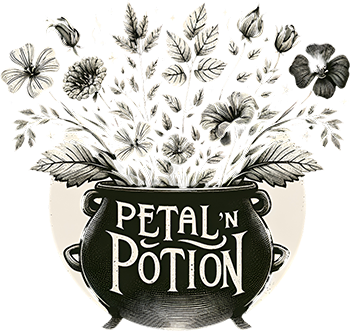O r e g a n o
Oregano (Origanum vulgare) is a perennial herb native to the Mediterranean region.
Known for its robust flavor and aroma, oregano has been used not only in culinary applications but also in traditional medicine for its numerous health benefits.
Benefits
- Antimicrobial Properties: Effective against bacteria, fungi, and viruses, making it useful for treating infections.
- Anti-Inflammatory: Reduces inflammation, which can help with conditions such as arthritis and inflammatory diseases.
- Antioxidant: Provides powerful antioxidants that protect cells from oxidative stress and damage.
- Digestive Health: Supports digestive function and can alleviate issues like bloating, indigestion, and cramps.
- Respiratory Relief: Helps alleviate symptoms of colds, coughs, and bronchial inflammation.
- Immune Support: Strengthens the immune system and aids the body in fighting off pathogens.
- Skin Health: Applied topically to treat skin conditions such as acne, dandruff, and minor wounds.
Active Compounds
- Carvacrol: A potent antimicrobial agent that fights bacteria and fungi.
- Thymol: Offers antiseptic, antifungal, and antioxidant properties.
- Rosmarinic Acid: Known for its anti-inflammatory and antioxidant effects.
- Terpenes: Provide additional antimicrobial and antioxidant benefits.
- Flavonoids: Contribute to the antioxidant and anti-inflammatory properties.
Who Should Avoid This
- Individuals with Allergies: Those allergic to oregano or other herbs in the Lamiaceae family (such as mint, thyme, basil, and sage) should avoid oregano.
- People on Medication: Particularly those taking blood thinners or diabetes medication should consult a healthcare provider to avoid interactions.
- Pregnant and Nursing Women: Due to limited safety data, it is advisable to consult a healthcare provider before use.
Warnings
While oregano offers numerous health benefits, some precautions and potential side effects should be considered:
- Allergic Reactions: Can cause allergic reactions in some individuals, especially those allergic to plants in the Lamiaceae family.
- Pregnancy and Breastfeeding: Consult a healthcare provider before use, as safety data is limited.
- Gastrointestinal Issues: High doses can cause stomach upset or gastrointestinal irritation.
- Interactions with Medications: May interact with certain medications, including anticoagulants and drugs that affect blood sugar levels.
Usage Guidelines
Oregano can be used both short-term and long-term, depending on the condition being treated. For acute issues such as respiratory infections or digestive discomfort, it is typically used until symptoms improve. For ongoing benefits such as immune support or antioxidant protection, longer-term use may be appropriate but always under the guidance of a healthcare professional. Always consult with a healthcare provider to determine the correct dosage and duration for your specific needs.
